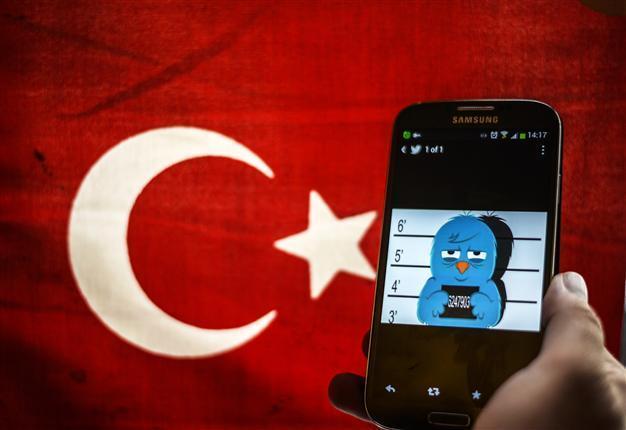EU seeks explanation for Twitter blackout
ANKARA

A Turkish court on March 26 overturned the government's controversial Twitter ban imposed by the country's telecommunications authority.
The European Union officially sought from the Turkish government an explanation of the legal basis for shutting down Twitter, but has received no prompt responses, the Hürriyet Daily News has learned.Having already expressed its serious concerns over the Turkish government’s decision to block access to Twitter, the EU wanted to learn the legal framework of the move so that it could coordinate its future steps towards its full membership candidate.
The Daily News learned that diplomats from the EU Delegation in Ankara held meetings with officials from both the Justice Ministry and the Transportation and Communication Ministry, which controls the Telecommunication Directorate (TİB). In face-to-face meetings, EU diplomats wanted to hear the legal basis of the blackout on Twitter to report it to the EU Commission in Brussels. Turkish officials declined to give an explanation about the move, the Daily News was informed.
Following the TİB’s decision to block Twitter, senior EU officials, particularly Enlargement Commissioner Stefan Füle, strongly criticized the move, underlining it was in serious breach of freedom of expression and the right to communicate. Füle also conveyed his serious concerns about the move, calling on the Turkish government to swiftly lift the ban.
Apart from Füle’s statement, some other senior members also issued statements, but there has been no institutional reaction made by the EU so far. The EU first wanted to get in touch with Turkish officials for an explanation, which would help Brussels in planning its future steps against the move.
Some EU diplomats stressed that in the case of Twitter, as distinct from the Supreme Council of Judges and Prosecutors Law (HSYK), member countries and their senior officials had issued separate
statements urging the Turkish government to respect the principle of freedom of expression and right to communicate. The Foreign Ministries of the U.K., Germany, France and many others issued statements underlining that such bans were not acceptable.
“This time, the situation is much more serious. There is no place for the complete closure of such social media in either the EU acquis or in international conventions Turkey is already part of,” diplomat sources said. Underlining that logic required the suspension of negotiation talks, the same diplomats underlined that it was becoming harder to defend the Turkish accession process.
Brussels will mull over how to act toward the Turkish government in the face of continued pressure on the freedom of expression and violation of fundamental human rights in Turkey.
Turkey and the EU will meet around the same table in the first half of April as part of the Association Committee meeting. The meeting will provide both sides with the opportunity to review the state of negotiations, over which a shadow has been cast due to the government’s distancing itself from universal principles and human rights. The EU had expressed its concerns regarding the developments in five separate letters since Dec. 17, 2013, the day when a massive corruption and graft operation that engulfed senior government members was launched.
















